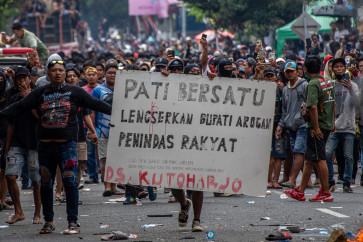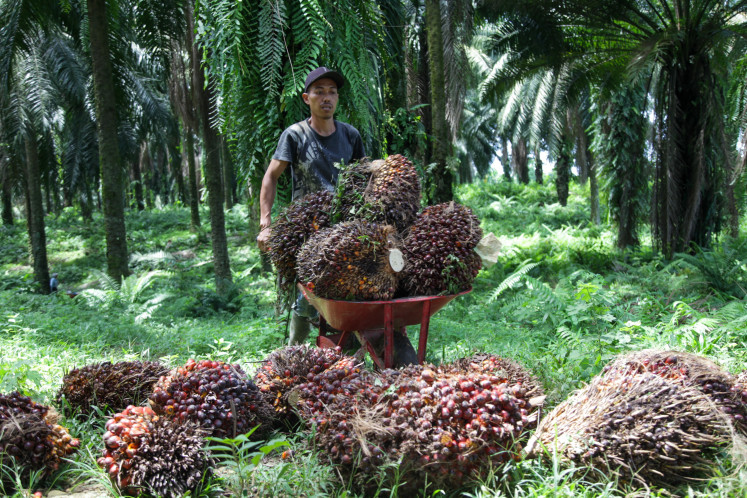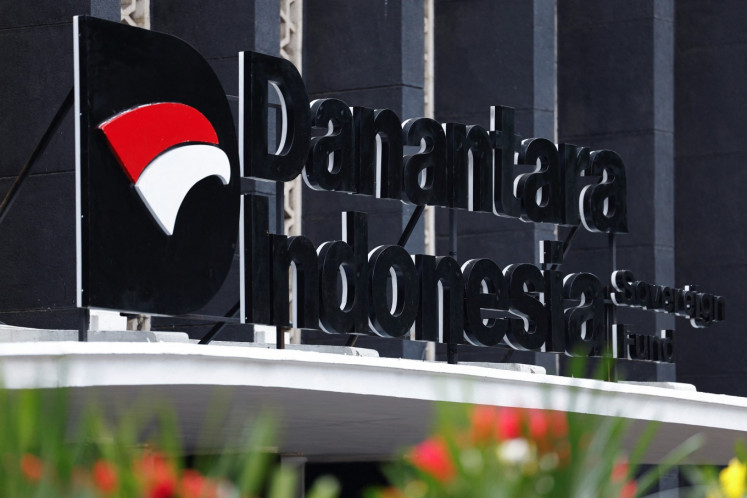Popular Reads
Top Results
Can't find what you're looking for?
View all search resultsPopular Reads
Top Results
Can't find what you're looking for?
View all search resultsMaybank Indonesia maintains growth momentum with sharia playing key part
Change text size
Gift Premium Articles
to Anyone
M
aybank Indonesia has retained its strong financial performance, largely contributed by its sharia banking unit and its Sharia First strategy as gradual economic recovery in Indonesia takes place amid the COVID-19 pandemic.
Sharia First has been promoting Islamic financial solutions through a leveraged model since 2013.
“This model allows the sharia banking unit to market and distribute sharia solutions by accessing and utilizing all the bank’s resources and networks,” said the bank in a statement.
The total sharia-compliant asset portion of Maybank Indonesia has reached 25 percent, well above the 6.5 percent of total sharia assets recorded by the Indonesian banking sector in November 2021, or the highest percentage of all banks with sharia business units in Indonesia.
“The Sharia First strategy has significantly contributed to Maybank Indonesia’s sharia banking unit performance as reflected by its profit before tax [PBT], which jumped 52.8 percent to Rp 450 billion [US$31.32 million] in December 2021 from Rp 295 billion in the previous year,” the bank said.
Total customer deposits increased 13.1 percent to Rp 31.04 trillion from Rp 27.44 trillion, supported by a surge in current account savings accounts (CASA), which increased 69.9 percent to Rp 11.70 trillion in December 2021 from Rp 6.89 trillion in the previous year. The increment was supported by the bank’s continuing effort to optimize low-cost funding.
The sharia banking unit’s total assets rose 11.2 percent to Rp 39.22 trillion in December 2021 from Rp 35.26 trillion in December 2020.
The financing-to-deposit ratio (FDR) stood at 82.44 percent, while nonperforming financing (NPF) stood at 3.73 percent (gross) in December 2021.
The bank’s profit after tax and minority interest (PATAMI) was recorded at Rp 1.64 trillion, an increase of 29.9 percent from Rp 1.27 trillion in the previous year, backed by lower provisions, declining cost of funds and overhead costs, and supported by a strong performance from the sharia banking unit.
Net interest income (NII) decreased by 2.0 percent to Rp 7.12 trillion in December 2021 from Rp 7.26 trillion in the previous year, impacted by lower loan growth and a decreasing trend in loan yields, in line with the reduction in Bank Indonesia’s (BI) rates and ongoing restructuring of customers' loans impacted by the pandemic. However, net interest margin (NIM) increased by 14 basis points to 4.7 percent in December 2021, which was attributed to the improvements in the cost of funds and healthy growth of CASA.
The bank’s fee-based income declined 12.1 percent to Rp 2.09 trillion in December 2021 from Rp 2.38 trillion in the previous year, primarily due to declining global markets-related fees.
However, the bank was able to maintain the growth momentum and strengthen its retail-related income such as Bancassurance, which grew by 26.9 percent to Rp 201 billion in December 2021 from Rp 158 billion in the previous year.
Despite the squeeze in the bank’s net interest income and lower fee-based income, the bank’s net profit (PATAMI) grew by almost 30 percent as provisioning costs tapered due to preemptive provisioning, which was made in previous years along with well-contained overhead costs.










